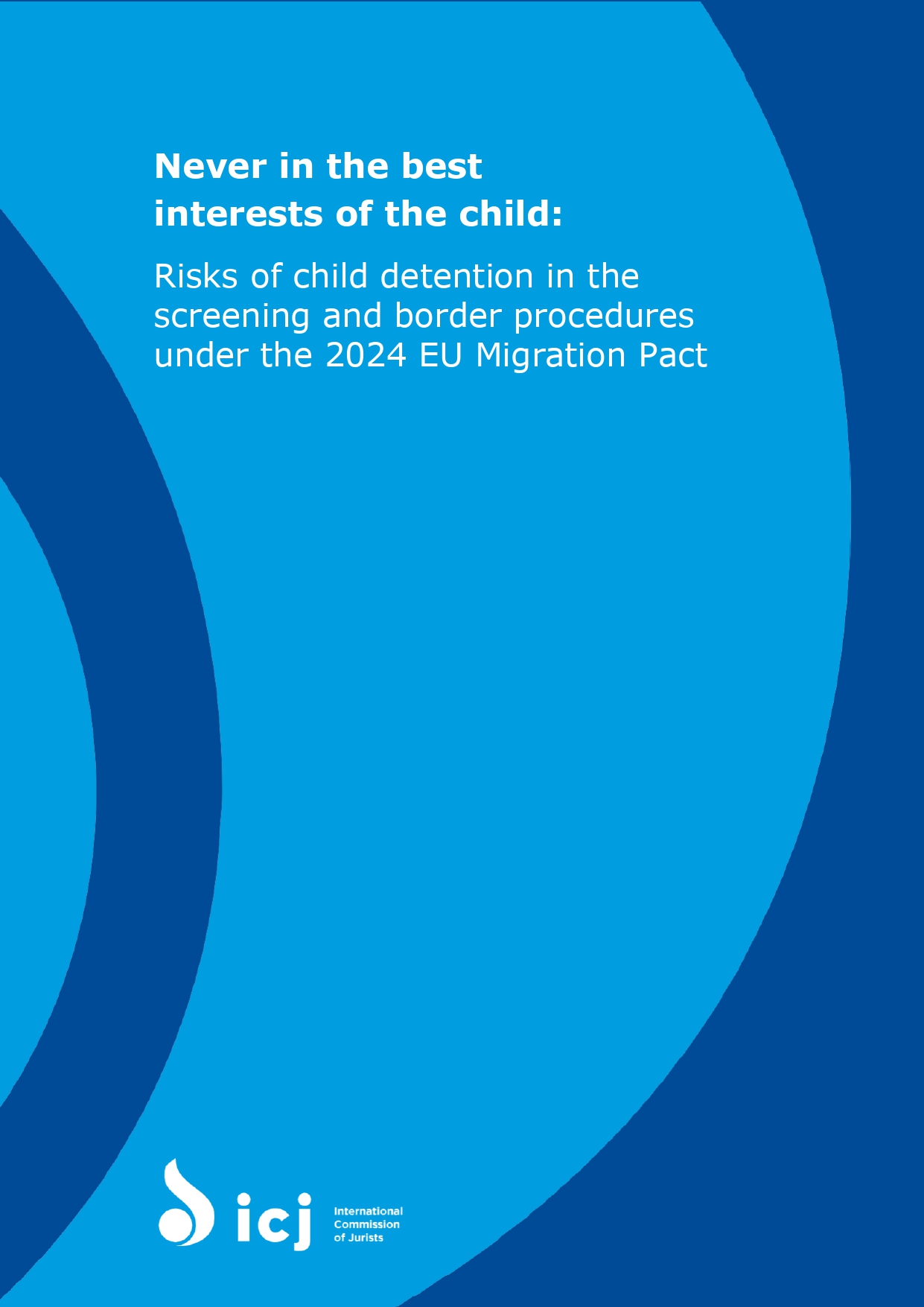The ICJ’s new briefing paper, Never in the best interests of the child: Risks of child detention in the screening and border procedures under the 2024 EU Migration Pact, critically examines the detention of child migrants under the EU Pact on Migration and Asylum and analyses relevant international human rights law and standards. Focusing on the new screening and border procedures, the paper assesses the widespread use of the “legal fiction of non-entry”, and its potential to increase the use of child immigration detention, posing serious human rights concerns.
“The EU Pact should not become an excuse for EU Member States to detain migrants, including children and other vulnerable individuals,” said Karolína Babická, ICJ Europe and Central Asia Programme’s Senior Legal Adviser. “On the contrary, we call on Member States to ensure they honour their obligations under international human rights law and safeguards imposed by EU law”, she added.
The briefing paper finds that the EU Pact incentivizes the use of detention to purportedly facilitate screening and border procedures, raising profound concerns that the Pact will lead to a further increase in the use of detention procedures. This entails a significant risk of violations of EU and international law, such as the prohibition of immigration-related deprivation of liberty of children, which is never in the child’s best interests and inherently violates their human rights. The ICJ therefore calls for a revision of the EU Pact to ban the immigration detention of children entirely, as such detention violates international human rights law, and, until then, urges Member States to implement such prohibitions at national level, in line with international human rights law.
Nevertheless, the EU Pact also includes important safeguards related to detention and children’s rights. It is therefore crucial that in implementing the Pact, EU Member States ensure all safeguards in practice in full compliance with international human rights law and standards. Member States should also ensure that the best interests of the child be given primary importance in all decisions affecting children. Children should be treated primarily as children throughout the migration and asylum process, regarded as holders of rights, rather than as objects of migration enforcement, and provided with real alternatives to detention, respecting their human rights.
“International human rights law prohibits detaining children for immigration control purposes. Despite knowing that detention has devastating effects on children’s well-being, health and development, the EU Pact does not exclude detaining children in the name of “managing migration”. It is incumbent on Member States to prohibit such detention, and to ensure that human rights law standards are central to the implementation of the Pact.” said Elina Hammarström, ICJ Associate Legal Adviser.
In May 2024, the EU adopted the final texts of the new EU Pact on Migration and Asylum, consisting of ten legislative texts. The EU Pact, which will enter into force in June 2026, aims to for instance limit asylum seekers’ access to Europe and to asylum procedures. It further aims to accelerate asylum processes, and to facilitate the rapid return of people, whose asylum claims have been refused, to their home countries, including in ways that violate human rights and States’ international law obligations. The EU Pact has been widely criticized for hollowing out the right to seek and enjoy asylum from persecution and for leading to increased human rights violations and suffering at the EU’s borders.
Download
Briefing paper here
Contact
Elina Hammarström, ICJ Associate Legal Adviser, elina.hammastrom@icj.org
Karolína Babická, ICJ Senior Legal Adviser, karolina.babicka@icj.org

